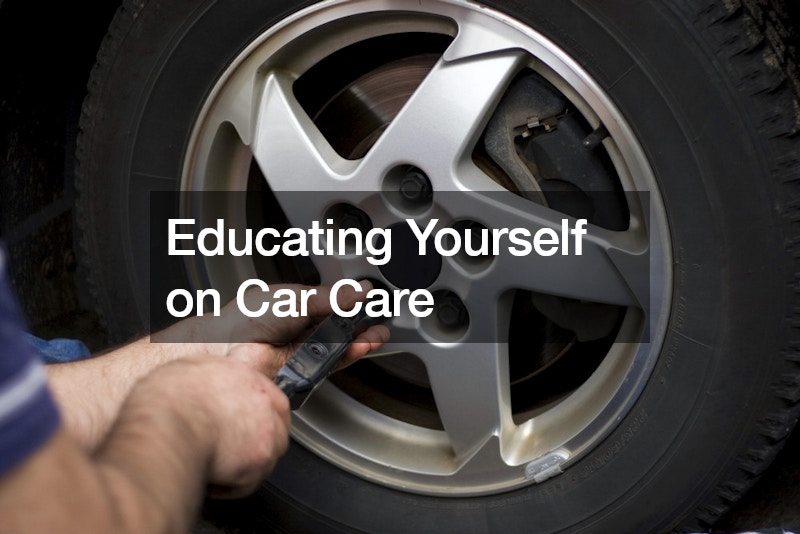

Maintaining your car is essential for ensuring safety, longevity, and performance. Proper maintenance not only helps you avoid costly repairs but also keeps your vehicle running smoothly. In this guide, we will explore various safe and affordable ways to maintain your car, covering everything from basic upkeep to more specialized services.
Regular Car Oil Change
One of the most fundamental aspects of car maintenance is the regular car oil change. Oil lubricates the engine’s moving parts, reducing friction and preventing wear. Over time, oil breaks down and becomes contaminated, which can lead to engine damage.
To keep your engine in optimal condition, follow your manufacturer’s recommendations for oil change intervals. Typically, this ranges from every 3,000 to 7,500 miles, depending on the type of oil and driving conditions. Using high-quality oil and filters can also enhance engine performance and longevity.
The Role of Diesel Mechanics

If you own a diesel vehicle, seeking out diesel mechanics is crucial. Diesel engines differ significantly from gasoline engines, and specialized knowledge is required for proper maintenance and repairs. Diesel mechanics can perform a variety of services, including fuel system maintenance, turbocharger inspections, and emission control checks.
Regular visits to a diesel mechanic will help you maintain fuel efficiency and prevent common issues such as injector failures and particulate filter clogs. By addressing problems early, you can avoid costly repairs down the road.
Finding Reliable Local Auto Body Shops
Accidents and wear and tear can leave your car’s exterior looking less than pristine. Local auto body shops provide services ranging from minor dent repairs to complete bodywork restoration. When choosing an auto body shop, look for one with good reviews and certifications, such as I-CAR or ASE.
A reputable auto body shop will use high-quality materials and provide a warranty on their work. This ensures that your car not only looks good but is also structurally sound and safe to drive.
Benefits of Auto Window Tinting Service
Auto window tinting service offers more than just aesthetic appeal. Tinted windows can significantly reduce the amount of heat entering your car, making it more comfortable to drive in hot weather. They also block harmful UV rays, which can protect your skin and prevent the interior from fading.
In addition, window tinting can provide an extra layer of privacy and security, making it harder for potential thieves to see inside your car. When choosing a window tinting service, ensure they use high-quality film and provide a warranty on their work.
Importance of a Local Mechanic
Having a trustworthy local mechanic can make a world of difference in your car maintenance routine. A local mechanic is more likely to offer personalized service and develop a long-term relationship with you and your vehicle. This familiarity allows them to notice issues that may be missed by others.
Local mechanics can perform routine maintenance tasks, such as oil changes, brake inspections, and tire rotations, as well as more complex repairs. Building a relationship with a local mechanic can lead to better service and potentially lower costs over time.
Keeping Your Tires in Good Condition

Tires are a critical component of your vehicle’s safety and performance. Regular tire maintenance, including rotations, balancing, and alignments, can extend their lifespan and improve fuel efficiency. Check your tire pressure monthly and keep it at the recommended level to avoid uneven wear and blowouts.
Inspect your tires for tread wear and replace them when necessary. Driving on worn tires can reduce traction and increase the risk of accidents, especially in adverse weather conditions. Investing in quality tires and maintaining them properly is a cost-effective way to ensure your safety on the road.
Routine Engine Repairs and Inspections
Routine engine repairs and inspections are vital for keeping your car running smoothly. Regular check-ups can identify issues such as worn belts, leaky hoses, and faulty sensors before they lead to more serious problems. Keeping your engine clean and free of debris can also improve its performance and longevity.
Pay attention to warning lights on your dashboard and address them promptly. Ignoring these signals can result in more extensive and expensive repairs. A well-maintained engine not only performs better but also consumes less fuel, saving you money in the long run.
Ensuring Proper AC Maintenance
AC maintenance is essential for keeping your car comfortable, especially during hot weather. Regularly check your air conditioning system for leaks and ensure it is properly charged with refrigerant. A poorly functioning AC can affect your overall driving experience and may indicate underlying issues.
If you notice a decrease in cooling efficiency or unusual noises, have your AC system inspected by a professional. Routine maintenance can prevent costly repairs and ensure your AC system operates efficiently when you need it most.
Importance of Transmission Service
The transmission is one of the most complex and critical components of your vehicle. Regular transmission service is necessary to keep it functioning correctly. This includes checking the transmission fluid level and condition, as well as performing fluid changes as recommended by the manufacturer.
Ignoring transmission maintenance can lead to costly repairs or even a complete transmission failure. If you notice issues such as slipping gears, delayed shifting, or strange noises, have your transmission inspected by a professional immediately.
Specialized Mercedes Auto Repair
Owning a luxury vehicle like a Mercedes requires specialized care. Mercedes auto repair services are designed to meet the specific needs of these high-performance vehicles. Regular maintenance by a certified Mercedes technician ensures that your car remains in top condition and retains its value.
Mercedes repair services include everything from routine oil changes and brake inspections to more complex tasks like electronic system diagnostics and suspension repairs. Using genuine Mercedes parts and following manufacturer guidelines are crucial for maintaining the performance and longevity of your vehicle.
Affordable DIY Maintenance Tips

While professional services are essential for certain tasks, there are several maintenance activities you can perform yourself to save money. These include:
- Regularly checking fluid levels: Monitor your oil, coolant, brake fluid, and windshield washer fluid levels, topping them off as needed.
- Replacing air filters: Clean or replace your air filter every 12,000 to 15,000 miles to ensure optimal engine performance.
- Inspecting and replacing wiper blades: Ensure clear visibility by changing your wiper blades every six months or when they show signs of wear.
- Cleaning battery terminals: Prevent corrosion and ensure a reliable electrical connection by cleaning your battery terminals regularly.
- Checking and replacing light bulbs: Ensure all your lights are functioning correctly for safety and visibility.
By incorporating these DIY tips into your maintenance routine, you can keep your car in good condition without breaking the bank.
Utilizing Seasonal Maintenance Checklists
Seasonal changes can affect your vehicle’s performance and safety. Preparing your car for different seasons can help you avoid potential issues. Here are some seasonal maintenance tips:
- Spring: Check your cooling system, inspect wiper blades, and rotate tires.
- Summer: Ensure your AC system is functioning, check tire pressure, and inspect the cooling system.
- Fall: Inspect brakes, check tire tread depth, and prepare your car for colder weather.
- Winter: Check battery health, ensure proper antifreeze levels, and switch to winter tires if necessary.
Following a seasonal maintenance checklist can help you address specific needs and prevent seasonal-related issues.
Using Quality Parts and Fluids
Using high-quality parts and fluids is crucial for maintaining your vehicle’s performance and longevity. Inferior products may save you money initially but can lead to more significant problems and expenses down the road. When replacing parts or topping off fluids, opt for products that meet or exceed your manufacturer’s specifications.
Building a Maintenance Schedule
Creating and adhering to a maintenance schedule can help you stay on top of necessary tasks and prevent overlooked issues. Refer to your owner’s manual for recommended maintenance intervals and create a checklist to keep track of completed services.
Regularly reviewing and updating your maintenance schedule ensures that you address all aspects of car care, from oil changes to more complex repairs. Consistency is key to maintaining your vehicle’s health and performance.
Addressing Minor Issues Promptly
Small issues can quickly escalate into major problems if left unaddressed. Pay attention to any unusual sounds, smells, or changes in performance. Addressing these minor issues promptly can prevent more extensive and costly repairs.
Regularly inspect your vehicle and take note of any potential concerns. By staying proactive, you can catch and resolve issues before they become significant problems.
Benefits of Preventive Maintenance
Preventive maintenance is the practice of performing regular upkeep to prevent future problems. This approach not only extends the life of your vehicle but also saves you money by avoiding costly repairs. Key preventive maintenance tasks include:
- Oil changes: Regularly changing your oil prevents engine wear and tear.
- Fluid checks: Monitoring and maintaining fluid levels ensures optimal performance.
- Brake inspections: Regularly inspecting and servicing your brakes ensures safety and prevents expensive repairs.
- Tire rotations: Rotating your tires evenly distributes wear, extending their lifespan.
By incorporating preventive maintenance into your routine, you can keep your vehicle in top condition and avoid unexpected breakdowns.
The Role of Professional Inspections
While DIY maintenance is beneficial, professional inspections are essential for identifying issues that may not be visible to the untrained eye. Regularly scheduling professional inspections ensures that your vehicle receives comprehensive care.
Professional inspections can uncover hidden problems, such as internal engine wear or transmission issues. Addressing these problems early can prevent more severe damage and extend the life of your vehicle.
Cost-Effective Repair Solutions
When repairs are necessary, finding cost-effective solutions can help you manage expenses without compromising on quality. Consider the following tips:
- Compare quotes: Obtain multiple quotes from different service providers to ensure you get the best price.
- Use aftermarket parts: High-quality aftermarket parts can be a more affordable alternative to OEM parts.
- Negotiate: Don’t be afraid to negotiate with your mechanic for a better price or discounts on services.
By being proactive and informed, you can make cost-effective decisions while maintaining the quality of your vehicle’s repairs.
Building a Relationship with Your Mechanic
Establishing a good relationship with your mechanic can lead to better service and potentially lower costs. A mechanic who knows you and your vehicle is more likely to offer personalized care and notice issues that may be overlooked by others.
Communicate openly with your mechanic and ask questions about the services being performed. Understanding what your car needs and why can help you make informed decisions and build trust with your service provider.
Investing in a Maintenance Fund
Setting aside money for car maintenance can help you manage unexpected expenses and ensure you can afford necessary repairs. Create a maintenance fund and contribute to it regularly to cover routine upkeep and unforeseen issues.
Having a dedicated maintenance fund provides peace of mind and ensures you can address problems promptly, keeping your vehicle in good condition.
Educating Yourself on Car Care

Knowledge is power when it comes to car maintenance. Educating yourself on car care basics can help you perform simple tasks, recognize potential issues, and communicate effectively with your mechanic.
Resources such as online tutorials, car care books, and community classes can provide valuable information and skills. By becoming more knowledgeable, you can take a proactive approach to maintaining your vehicle.
Maintaining your car safely and affordably is achievable with regular care, preventive maintenance, and the right professional services. From routine oil changes and tire maintenance to specialized services like auto window tinting and Mercedes auto repair, each aspect of car care contributes to your vehicle’s overall performance and longevity.
By following the tips and strategies outlined in this guide, you can keep your car running smoothly, avoid costly repairs, and ensure your safety on the road. Investing time and effort into proper car maintenance pays off in the long run, providing you with a reliable and efficient vehicle for years to come.